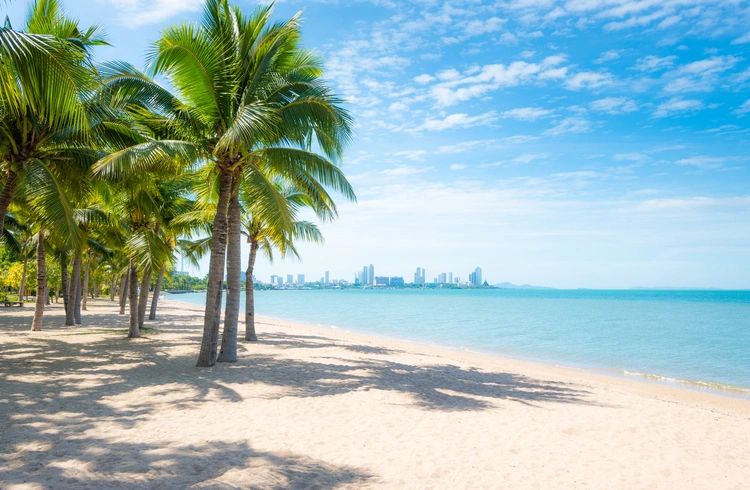Ready to Move To Thailand? What You Need to Know
If you’ve ever said, “I want to move to Thailand,” but didn’t think it was possible, you should reconsider.
Moving to Thailand is doable once you are schooled in the rules for expats and the costs involved.
Figuring out how to move to Thailand can be daunting, but with a solid plan and knowledge of the steps involved, you can find yourself sitting on a beach enjoying the warm climate in short order – after you have tackled the practical and legal aspects of doing so.
Reasons For Relocating To Thailand
There are many reasons for a move to Thailand. Some people move to Thailand to teach English, which, besides starting one’s own business, is a primary job choice for going there.
Others relocate to Thailand for the warm climate, beautiful beaches, and stunning scenery. However, along with the exotic landscape comes the threat of monsoons from July to the end of the year, so prepare for that possibility. Have a safety plan in place for you, your family, and your pets.
The safety and mixture of Thailand’s modern infrastructure couched in the arms of ancient culture can prove alluring for foreigners who seek a Zen-like vibe where they can earn money, live inexpensively, and surround themselves with idyllic mountain or ocean views. For these reasons, Thailand sounds like paradise.
Entrepreneurship is another main reason for making Thailand your new home, especially since cities such as Chiang Mai are welcoming centers for entrepreneurs who want to start or expand businesses. Unless your job relocates to Thailand or your company already exists there and you receive a transfer, starting your own business can be a smarter alternative. Otherwise, you could end up with a lower-paying job at a restaurant, bar, or other service industry establishment.
Cost Of Moving To Thailand
The cost of relocating can be high for an American emigrating to Thailand, so if you plan to move to Thailand with no money, you might want to rethink your strategy. While Thailand is far less expensive than living in the US, it can be difficult for an expat to find a high-paying job there. Be sure you have your finances in order before taking the leap.
Applying for a visa and making sure you meet the stringent requirements should be your first course of action. Due to tougher security restrictions, the Thai government suggests consulting with the Thai Embassy or the consulate in the US before paying for a visa application.
Move To Thailand: Importing
Although you may want to move your appliances to Thailand, it is less expensive to purchase new ones once you arrive. Your money stretches farther in Thailand. Paying thousands of dollars to ship appliances is the least-preferred option. Moving goods to Thailand becomes much easier if you take stock of what you own, decide what you can replace at a lower cost, and pare down the goods you plan to ship.
Likewise, moving a car to Thailand may not be a good choice. While you can ship a car to Thailand, the fees and duties for doing so can reach double the car’s value. If you plan to move there permanently, you can only import one used or new car.
According to Thai Customs, to import a vehicle you will need these documents:
Best Places To Move In Thailand
After emigrating to Thailand, if you are not sure where to move once you arrive, you should investigate well-known regions such as Chiang Mai, Bangkok, or Phuket.
There are advantages and drawbacks for these regions, including how crowded they are. For instance, while Bangkok offers an array of tempting sights, sounds, and experiences for an expat, it can also be crowded and confusing. After all, Bangkok is home to half of Thailand’s population.
For calmer surroundings, you may want to choose a place to rent in the suburban area outside of Bangkok or in Chiang Mai, where the weather is more bearable during the cool season (December and January in particular). In addition, the mountain views and ubiquitous Buddhist temples are soothing. Rent is also significantly lower.
If you rent property in Thailand, which is likely because owning property if you are a ‘farang,’ or foreigner, can be difficult, be prepared to pay property taxes on your rental. Landlords have to pay this tax of about 12.5 percent, but they often pass along the costs to their renters.
And, if you are an American moving to Thailand, keep in mind that while many Thais speak English, you may want to learn languages such as Chinese, Malay, and Lao so you can communicate more easily within Thailand’s culture while searching for a place to live.
Moving Pets To Thailand
If you plan to move to Thailand with a dog or another animal, there are several things you need to know. First, you need a health certificate for your pet in English. It must be signed by a vet from the country you are moving from.
It must note the number of dogs and their species, their breed, sex, age, and identifying colors, in addition to the address of the owner.
You must certify the animal comes from a disease-free area and they are fit to travel. Your pet must also be vaccinated against Leptospirosis at least 21 days before departing for Thailand.
Finally, it is essential to obtain an import permit from the Department of Livestock Development. Documents should include a passport copy, history of vaccination, address in your country, details about your animal, date of arrival to Thailand, and the name of exit port in your country.








 . '
. '
 . '
. '
 . '
. '
 . '
. '
 . '
. '








